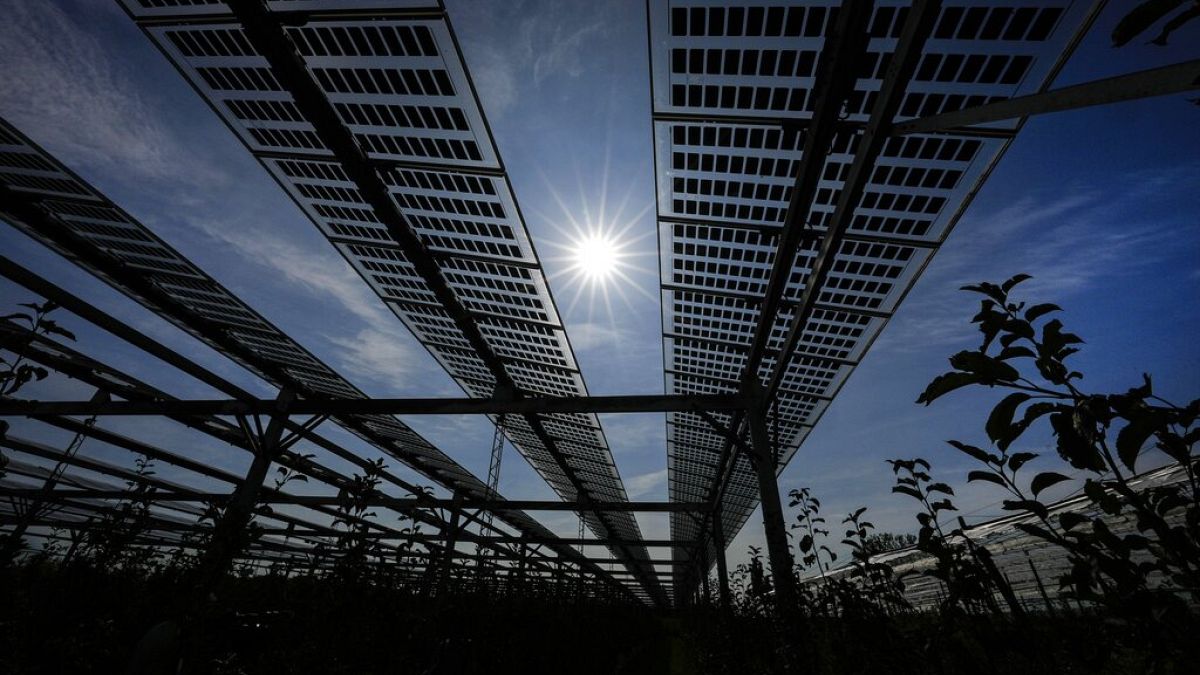Addition for the study: Empowering farmers in Central Europe: the case for agri-PV – (archived link)
Deploying solar panels and growing crops on the same land could be a solution to boost renewable electricity in Czechia, Hungary, Poland and Slovakia, reaching the equivalent of 68% of today’s energy demand in the countries, according to new research.
A study by energy think tank Ember posits that combining electricity and crop production, a practice dubbed agri-PV, on just 9% of farmland could meet the electricity needs of agriculture and food processing in the region.
The UK-based NGO suggests that 180GW of solar panels could be installed on crops across the central European countries – triple the targeted capacity by 2030 set out in draft national energy plans, and seven times more than the total installed capacity across the countries at present.
Boasting 19% of the EU’s arable land, the so-called Visegrad 4 countries produce a disproportionately large amount of staple crops such as wheat, oats and rye, production that Ember notes could be imperiled by volatile fertilizer prices, recurrent droughts and extreme weather events.



Here we go: Empowering farmers in Central Europe: the case for agri-PV – (archived link)
I added the link also in the body.
Thanks